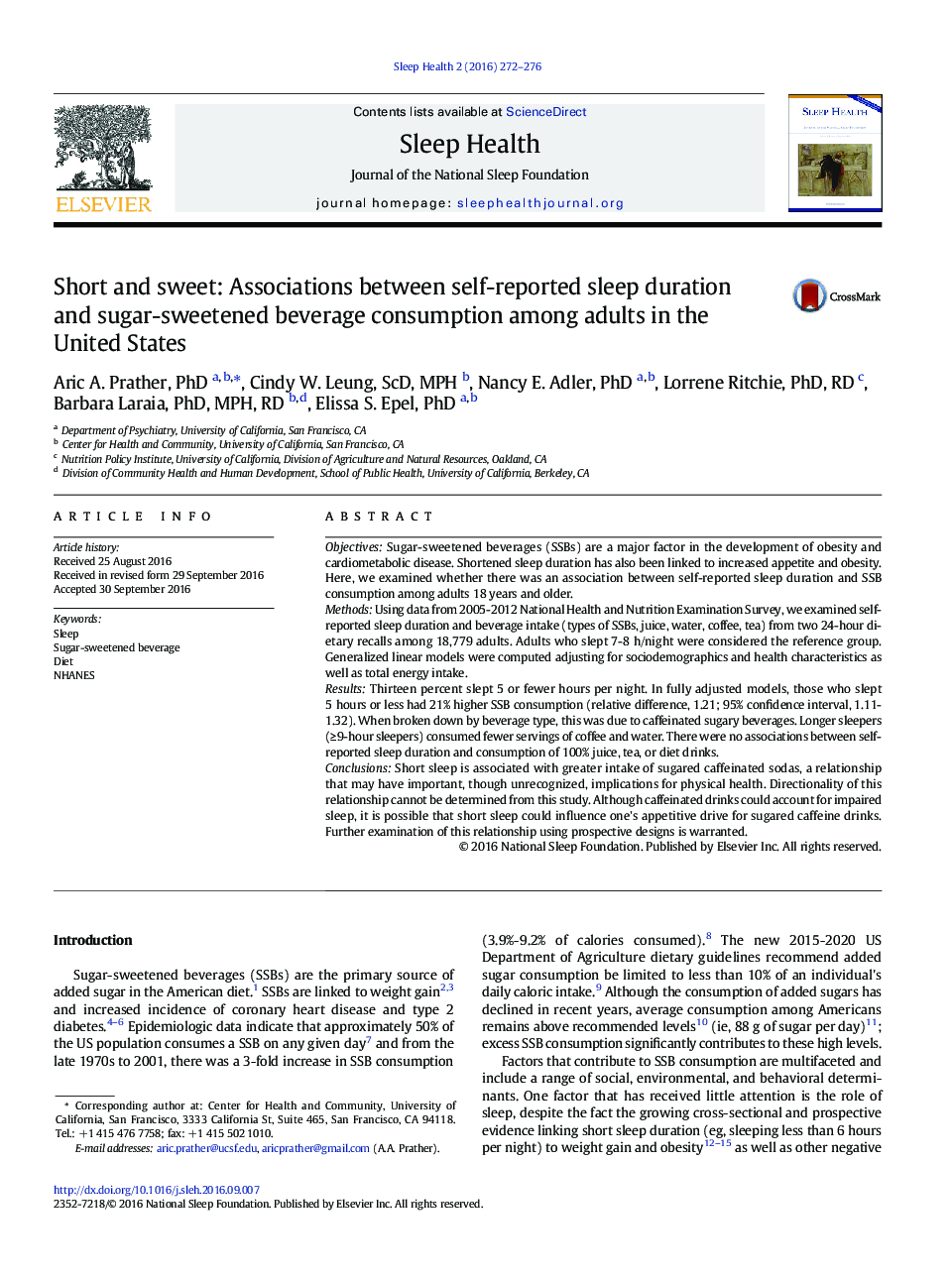| Article ID | Journal | Published Year | Pages | File Type |
|---|---|---|---|---|
| 5039528 | Sleep Health | 2016 | 5 Pages |
ObjectivesSugar-sweetened beverages (SSBs) are a major factor in the development of obesity and cardiometabolic disease. Shortened sleep duration has also been linked to increased appetite and obesity. Here, we examined whether there was an association between self-reported sleep duration and SSB consumption among adults 18 years and older.MethodsUsing data from 2005-2012 National Health and Nutrition Examination Survey, we examined self-reported sleep duration and beverage intake (types of SSBs, juice, water, coffee, tea) from two 24-hour dietary recalls among 18,779 adults. Adults who slept 7-8 h/night were considered the reference group. Generalized linear models were computed adjusting for sociodemographics and health characteristics as well as total energy intake.ResultsThirteen percent slept 5 or fewer hours per night. In fully adjusted models, those who slept 5 hours or less had 21% higher SSB consumption (relative difference, 1.21; 95% confidence interval, 1.11-1.32). When broken down by beverage type, this was due to caffeinated sugary beverages. Longer sleepers (â¥9-hour sleepers) consumed fewer servings of coffee and water. There were no associations between self-reported sleep duration and consumption of 100% juice, tea, or diet drinks.ConclusionsShort sleep is associated with greater intake of sugared caffeinated sodas, a relationship that may have important, though unrecognized, implications for physical health. Directionality of this relationship cannot be determined from this study. Although caffeinated drinks could account for impaired sleep, it is possible that short sleep could influence one's appetitive drive for sugared caffeine drinks. Further examination of this relationship using prospective designs is warranted.
